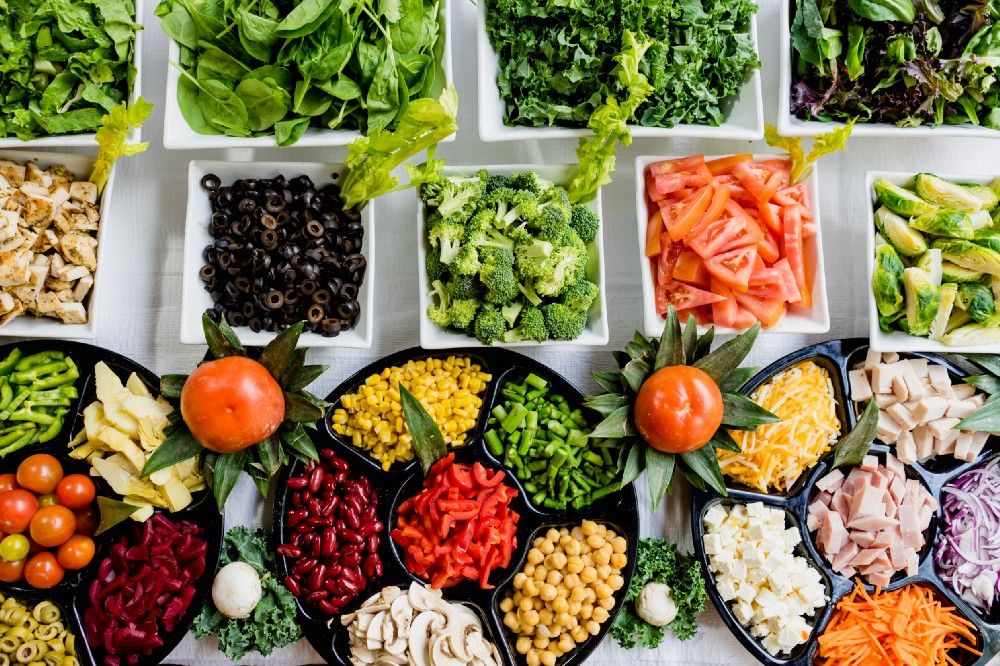
Why We Eat Too Much

And seek the wrong solution
It’s easier than ever to eat more than we need.
Modern times have created times of caloric abundance and sedentary lifestyles.
As a result, a huge wellness industry has emerged.
The suggestions are that you need superfoods, kale, broccoli, spinach and wholegrains — advice that sounds logical on the surface — but this is to fail to engage with the real reasons why you eat too much in the first place.
You are starved for the ingredients you truly crave.
Trying to “diet” is to misunderstand entirely the reasons why you eat too much in the first place.
You do so because what you are really hungry for isn’t available to you, and you become stuck.
Stuck in patterns. Stuck in a harsh and punishing narrative in your own mind.
“Why am I so ill-disciplined?” you ask yourself.
But this is to miss, entirely, the point.
You believe the idea is to make every meal as bland and low-calorie as possible, hoping that more willpower carries you through.
In this society, full of choice and temptation, this can only last so long.
Deeper introspection is required.
A deeper reason to make new choices must be attained.
You cannot battle this all your life — not against food — and expect to come off the victor.
Because food will always be there. It’s never going away (thankfully).
It’s never been easier to have food delivered to your door. Who wouldn’t want that luxury after a long day at a stressful job?
But could you reconnect with the therapeutic experience of taking raw ingredients from the fridge to the finished article on a plate?
Restaurant chefs offer us fancy menus of rich tasty foods.
The take-away we ordered that we didn’t even want is engineered to be as moreish as possible.
Low in nutrients. High in calories. Even higher in momentary soothing.
But what if we could choose from a different menu?
What if the real nutrition that we are devoid of is nutrition for the soul? For our sense of inner peace?
The real craving is acceptance — that you could finally stop judging yourself (and others) by undeservedly high standards.
That you could share an idea or sexual fantasy or your real sexual persuasion without being judged unfairly.
That you are made feel attractive, or even just enough, in spite of that major insecurity you keep trying to diet your way out of.
You need to have that challenging conversation you have been putting off — one that is marinated in understanding and forgiveness rather than the fear you anticipate.
We are forced into a society where we must integrate and coexist with those whose pain we cannot help from letting sift into our world and become our pain — the pain we all then deal with in different ways.
The diet industry, myself included, can only appeal to a narrow fragment of your complicated psychology.
We understand the what.
We can not help you connect the why unless you are ready to do so.
When people say most diets fail they are speaking of those who try to diet themselves away from the insecurities that plague them.
In this narrow definition, all diets are bound to fail.
You cannot starve yourself away from a lack of love, forgiveness, tenderness, understanding, compassion and acceptance.
It isn’t that the diet itself fails, but the deeper reasons for needing to diet were not explored appropriately in the first place.
Collectively, we speak so much of food and calorie deficits.
Instead, we should place our attention on connection — to the experience of food, to friends and to ourselves. To slowing down. To choice. Self-awareness. To carefully curated values. To honest and non-judgmental communication.
You don’t need me to tell you that when you say F*ck-it and reach for the large pizza or the share-size crisps, a colourful fruit salad would have been the more nourishing choice.
You know this.
I’d be naïve to assume you are trying to satiate your physical well-being whilst failing to see you are trying instead to fill an emotional void.
But this can only last a number of seconds before the guilt sets in.
The guilt isn’t around the food. Not directly.
It’s that we do not value ourselves enough to keep the smallest of promises.
Perhaps you think you’re not worth it.
Perhaps you’ve failed every time you said you’d try and change.
You trust yourself less and less with each failed attempt.
The solutions that Trainers and diets offer are fragile, as they don’t connect with the deeper reasons for change.
The problem isn’t an unconstrained appetite.
I have seen clients change this pattern over time.
The problem is that we cannot look deeper into our own souls or our psychology with curiousity, but rather with scathing judgement — like a harsh critic or an unforgiving parent.
Judgement becomes the vehicle. Shame becomes the driver.
You are not gluttonous. You are not greedy or lazy.
You haven’t found, yet, what would lead you to deal with the real route of why you eat past the perception of “enough” in the first place, through a compassionate examination of your own mind.